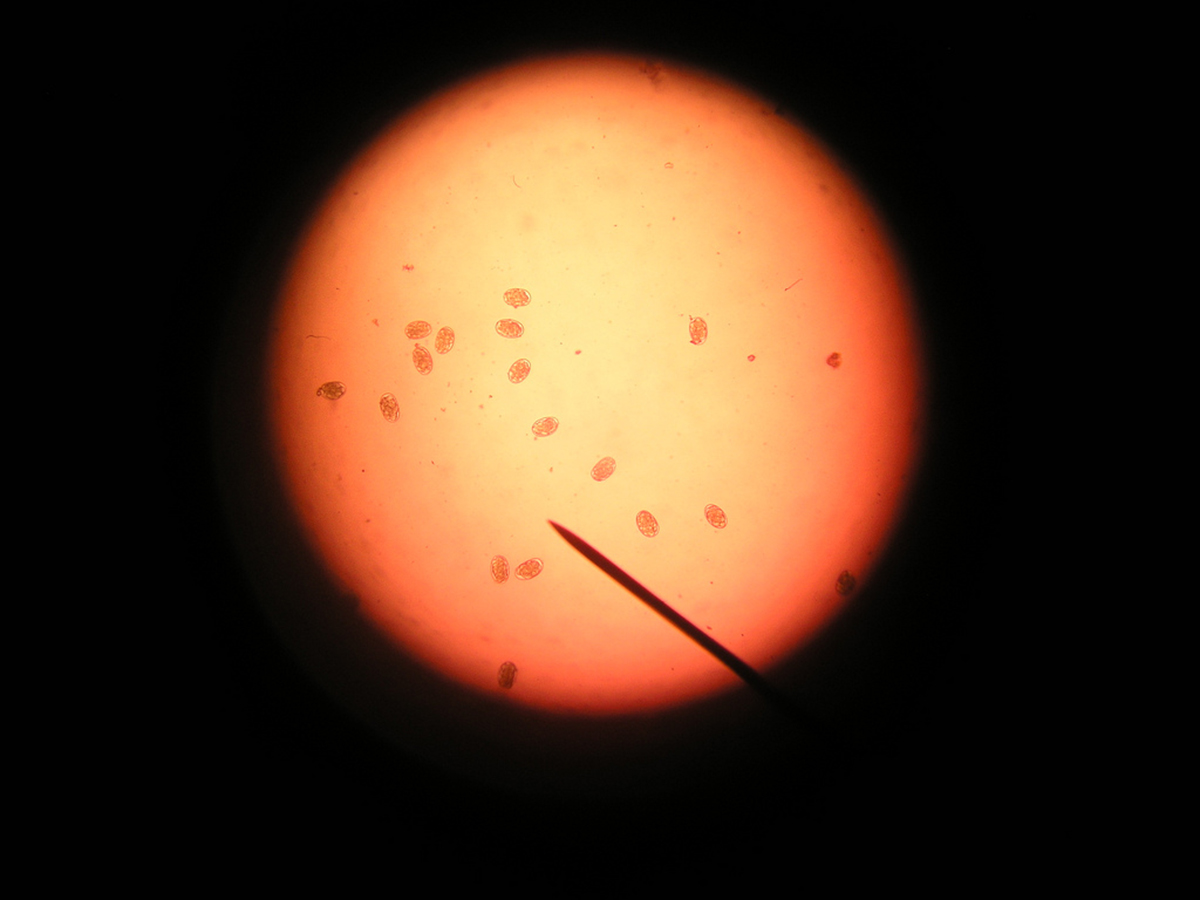Table of Contents
Science writer Sarah Kaplan likens an infectious hookworm to a good cat burglar. Like a cat burglar, a hookworm breaks in and steals, but it knows better than to make a mess. It releases chemicals that eat through the lining of the intestine, but it also secretes chemicals that repair the damage once the parasite has a connection to the blood system. It only takes a few drops of blood a day for its own needs. It thoughtfully releases its offspring in dumps of poop rather than scattering them all over the host body. It secretes other chemicals that turn off alarm bells to alert the immune system.

A hookworm is almost like a symbiote, not a parasite, because it needs its human host to be happy and healthy. And with that in mind, Dr. Severine Navarro and colleagues at James Cook University in Australia tried a bold experiment.
Hookworms Help People with Celiac Disease Tolerate Gluten
Navarro's team recruited 12 sufferers of celiac disease (the condition of extreme insensitivity to gluten protein in wheat and other grains) to be intentionally infected with hookworms. Dr. Navarro counsels that this is something no one should try at home. Parasites can cause serious health problems in children, in pregnant women, and in anyone who is taking an immunosuppressant medication.
However, in the 12 people with celiac disease who were given a hookworm infection, celiac symptoms improved. In fact, they improved enough that most of them were able to tolerate the equivalent of a medium-sized bowl of spaghetti.
Getting the Benefits of Hookworms without the Actual Parasite
The problem for future research was that there aren't a lot of people who are willing to be infected with hookworms. To get around this problem, Severine Navarro and colleagues isolated a protein in hookworm saliva called AIP-2 that the parasites release to hide themselves from the immune system of their human hosts. She then gave injections of this protein, rather than the actual hookworms, to asthmatic mice daily for five days. The mice improved, and their symptoms continued to be improved for 10 weeks (which probably corresponds to several years in humans). The protein had a calming effect on the immune system's dendritic cells, which patrol the body looking for signs of invading microorganisms.
READ How Far Would You Go Just to Lose Weight? Would You Eat Parasitic Worms?
Navarro said that the protein rewired T-cells to make them super-efficient. In autoimmune conditions like asthma and celiac disease, overactive T-cells attack a variety of proteins, some of which are actually parts of healthy, functioning human cells. AIP-2 helps T-cells focus their reactions on actual foreign organisms rather than on proteins that are just similar to those on the surface of infectious agents that might in fact be part of healthy cells.
An AIP-2 pill is under development. Navarro speculates that it might be useful for as many as 230 million people in the world who have asthma. It may also help people who have inflammatory bowel disease or multiple sclerosis.
READ Eggs Of Pig Parasite Could Treat Your Autoimmune Disease
Getting infected with a parasite isn't really a good thing. Sometimes parasites make people very sick. However, harnessing the power of mild parasitic infection to modify the immune system may become an important part of curing autoimmune diseases.
- Navarro S, Pickering DA, Ferreira IB, Jones L, Ryan S, Troy S, Leech A, Hotez PJ, Zhan B, Laha T, Prentice R, Sparwasser T, Croese J, Engwerda CR, Upham JW, Julia V, Giacomin PR, Loukas A. Hookworm recombinant protein promotes regulatory T cell responses that suppress experimental asthma. Sci Transl Med. 2016 Oct 26. 8(362):362ra143. PMID: 27797959.
- Photo courtesy of microbiologybytes: www.flickr.com/photos/microbiologybytes/29301868581/
- Photo courtesy of microbiologybytes: www.flickr.com/photos/microbiologybytes/29301868581/
- Photo courtesy of willrix: www.flickr.com/photos/willrix/4090542441/


Your thoughts on this